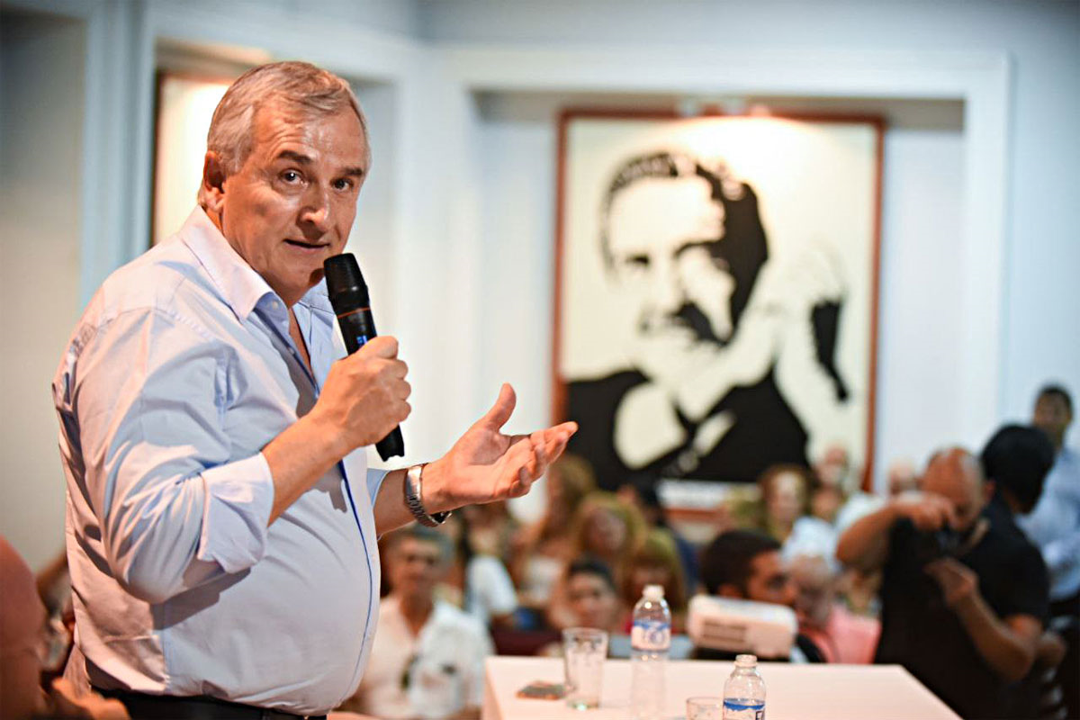The maximum referent of national radicalism did not hesitate to affirm that he would default all the commitments in pesos assumed by the State if elected president.
The measures put banks and savers at risk and generate more uncertainty.
The Governor of Jujuy, Gerardo Morales, officially launched himself as a presidential pre-candidate representing the most leftist sector of radicalism.

His outlandish statements aroused uncertainty among investors and savers, given the possible measures that could be adopted by one of the main partners in Juntos por el Cambio (Together for Change) in case he wins the presidency in December 2023.
Morales did not hesitate to announce that he was willing to default the public debt in pesos if elected president.
The radical referent did not show too much concern for the implications of his statements. He expressly referred to the bonds negotiated in the swap recently launched by Minister Sergio Massa.
“We are going to have to reprofile everything, to implement our plan and re-establish order”, explained the Governor of Jujuy without much hesitation.
Only in his first act after running for the presidency Morales reserved for himself one of the most irresponsible statements ever said so far in the 2023 campaign.
He used the term “reperfilamiento” as former Minister Hernán Lacunza had used it in his brief tenure in 2019, but it refers to a breach of terms in the State’s obligations.
“We are going to ‘reperfilar’ everything” Gerardo Morales anticipated what he would do with the debt in pesos if he reached the Government and assured that he would unify the exchange rate.
“We are going to see what they leave us,” he indicated.
Given the local financial system’s capital exposure to public sector securities, an eventual reprofiling threatens to trigger a financial crisis and a quick run on banks.
Although the default of peso debt is seen as an alternative to avoid monetizing those obligations through a BCRA bailout, the truth is that an eventual banking crisis would also imply a monetary bailout with similar inflationary consequences.
“There is a very good party representation here. I went all over the country, and there is a lot of energy in radicalism. We are in a position to dispute the leadership and centrality in Juntos por el Cambio; nothing has been resolved yet”, announced the Governor.
As part of his opening speech, Morales demanded “to go back to a productive Argentina,” although with short explanations about his proposal.
He also highlighted the importance of a “strong and present State” in the country’s economic life, following the postulates of the old radicalism of the last century.
This is not the first time the Governor has presented openly heterodox economic ideas.
Morales emerged as one of the strongest advocates of unbacked monetary issuance at the time of the pandemic when he decided to publicly urge the Government of Alberto Fernández to “do it “print without fear” because “in these conditions, issuing does not generate inflation”, about quarantine and price controls.
Later, as anyone but the radicals could have predicted, when the post-pandemic demand for pesos normalized, the price hike did not take long to appear, and the explosive monetary issuance conferred the most drastic inflation rise in the last 30 years.
Since Morales said this in mid-2020, inflation has risen almost 300%, with the CPI registering a year-on-year variation only since February last year of 102.5%, growing 6.6% last month.
With information from Derecha Diario

